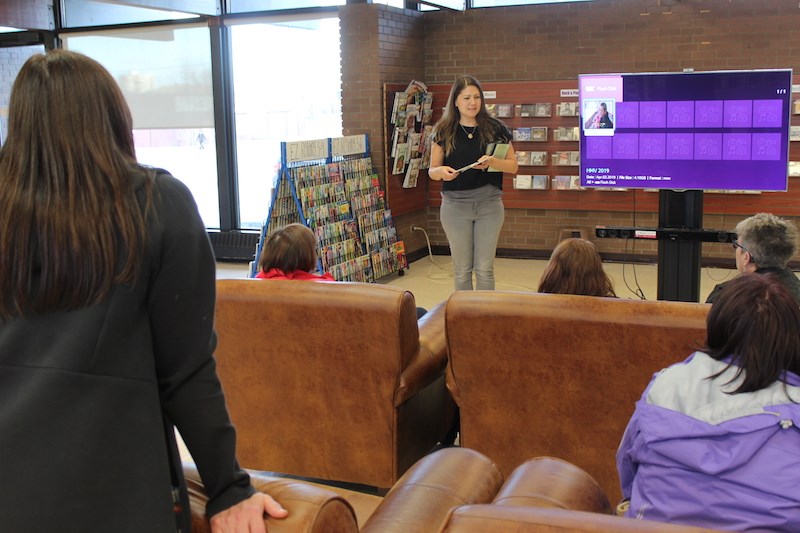Jennifer Dysart screened six short documentary films at the Thompson Public Library May 14 as part of the national Home Made Visible archival project.
After hosting similar events in Sioux Lookout and Thunder Bay, Ontario, the Cree filmmaker came to the Hub of the North on Tuesday to spread the program’s message of encouraging Indigenous residents and members of other minority communities to digitize as much of their personal archives as possible.
“Typically, when people think of archives they think of official government archives or corporate archives that are very structured, maybe a little intimidating to the average person,” said Dysart. “And so this project seeks to reimagine an archive of the future that’s a little more open and a little more representative of the diversity of Canadians.”
As such, Tuesday’s slate of shorts films all revolved around found footage, either as a theme or in terms of how each narrative is constructed.
For example, Dysart’s latest work titled “Caribou in the Archive” relies on archival footage from the National Film Board of Canada and her family’s own grainy home movies from the 1990s to tell the story of a woman hunting caribou in Northern Manitoba.
The rest of these films vary in terms of subject matter, ranging from intimate character pieces like “Portrait of a Zamboni Driver” to broader stories like “Arrival Archives” that documents how newcomers are adjusting to life in Canada.
Between January to June, Home Made Visible has screened or will screen these films in 11 cities across the country, including Edmonton, Halifax and Toronto.
Dysart was instrumental in bringing this film tour to Thompson, having plenty of connections to Northern Manitoba through her family’s history in South Indian Lake.
Several years ago she even used the Thompson Public Library to screen her found footage documentary “Kewekapawetan: Return After the Flood,” which details the displacement of South Indian Lake residents due to government interference.
Moving forward in her career, Dysart hopes to continue digging into various archives to find interesting stories and maintain a close connection to her community at the same time.
“There’s a long history of academics going into small Indigenous communities and taking stuff away, never to return again,” she said. “So I make a point of returning home as often as I can to share my work with people and my family and the larger community.”
Anyone who missed out on Tuesday’s screening can watch all of the featured shorts on the Thompson Public Library’s computers throughout the next two weeks.
Dysart has been making films since 2005 and received York University’s master’s thesis prize in 2014 for directing “Kewekapawetan: Return After the Flood.”
She currently lives in Hamilton, Ontario.




